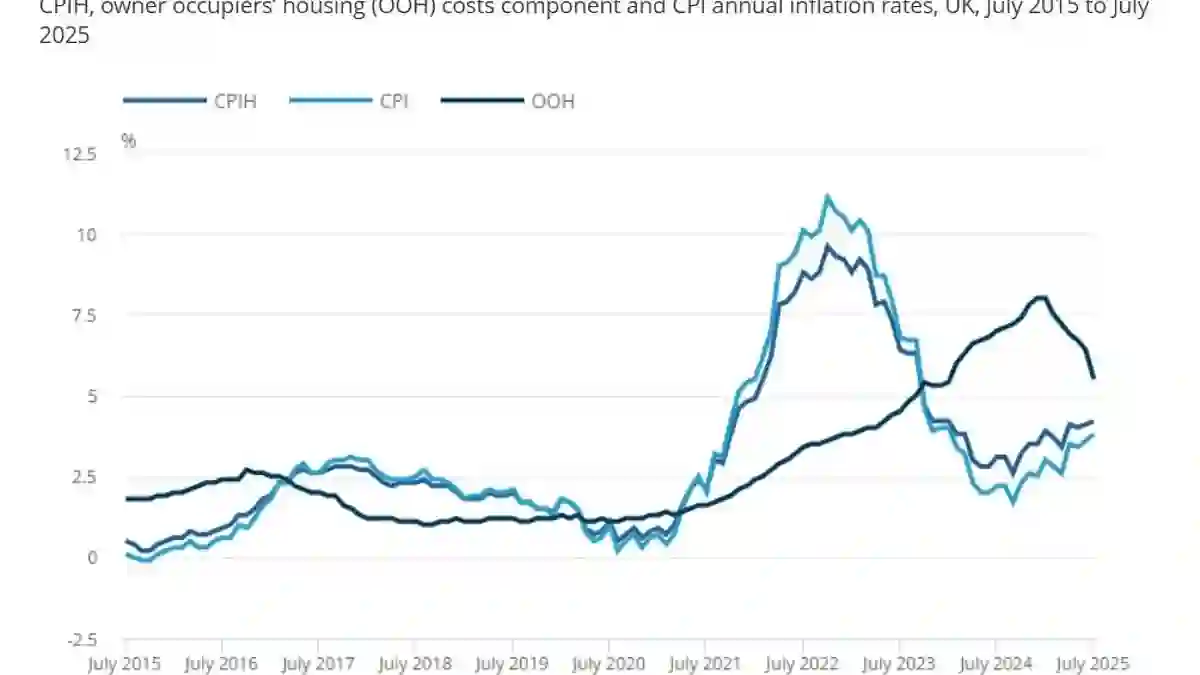As families packed their suitcases for summer holidays, many in the UK found that their wallets were getting a little lighter than expected.
Official figures released today reveal that inflation ticked up more than economists had predicted, driven largely by soaring travel and food costs.
July Sees Inflation Climb Higher Than Forecast
The latest Consumer Prices Index (CPI) data from the Office for National Statistics (ONS) shows that UK inflation rose to 3.8% in July, up from 3.6% in June.
Economists had anticipated a slightly smaller jump to 3.7%. While not the highest on record, this marks the strongest headline inflation since January 2024, when it reached 4%.
Summer Travel Pushes Air Fares Up
ONS economists point to the school summer holidays as a major factor behind the increase.
Chief economist Grant Fitzner explained that air fares experienced their largest July rise since 2001, when the collection of airfare data shifted from quarterly to monthly.
Petrol and diesel prices also contributed, climbing this July compared with a decline at the same time last year.
“Travel costs tend to spike when families are on the move for holidays, and this year was no exception,” Fitzner noted.
Food Prices Keep Rising
It’s not just travel. Everyday groceries are also getting more expensive.
Coffee, fresh orange juice, meat, and chocolate all saw significant price hikes, adding to the pinch felt by shoppers nationwide.
Government Response: Supporting Families Amid Rising Costs
Chancellor Rachel Reeves highlighted the steps her government is taking to ease financial pressure.
She pointed out measures such as raising the minimum wage, extending the £3 bus fare cap, expanding free school meals to over half a million additional children, and introducing free breakfast clubs across the country.
“Through our Plan for Change, we’re going further and faster to put more money in people’s pockets,” Reeves said.
Opposition Criticism: Labour’s Economic Choices Under Fire
Shadow chancellor Sir Mel Stride MP warned that the higher-than-target inflation could spell trouble for families.
He blamed Labour’s policies on jobs taxation and borrowing for driving up costs, suggesting that these choices are making everyday essentials pricier.
Similarly, Shadow Business Secretary Andrew Griffith argued that recent policy decisions, including minimum wage rises and tax changes, have fed through into higher prices.
“The Chancellor should think twice before imposing more tax hikes this autumn,” he said.
Liberal Democrats Call for Bold Action
Meanwhile, Liberal Democrat Treasury spokesperson Daisy Cooper MP voiced concern about the continuing cost-of-living squeeze.
She emphasized that, following the Conservative Government’s record fall in living standards, people need meaningful solutions.
Cooper urged Labour to adopt bolder measures, pointing to the party’s plan to halve energy bills by 2035 as a potential starting point.
Families Face a Summer Squeeze
With rising travel and food costs, UK households are feeling the immediate effects of inflation.
The debate now turns to how the government and opposition parties will respond, and whether bold action can ease the financial strain for families ahead of the coming autumn months.



